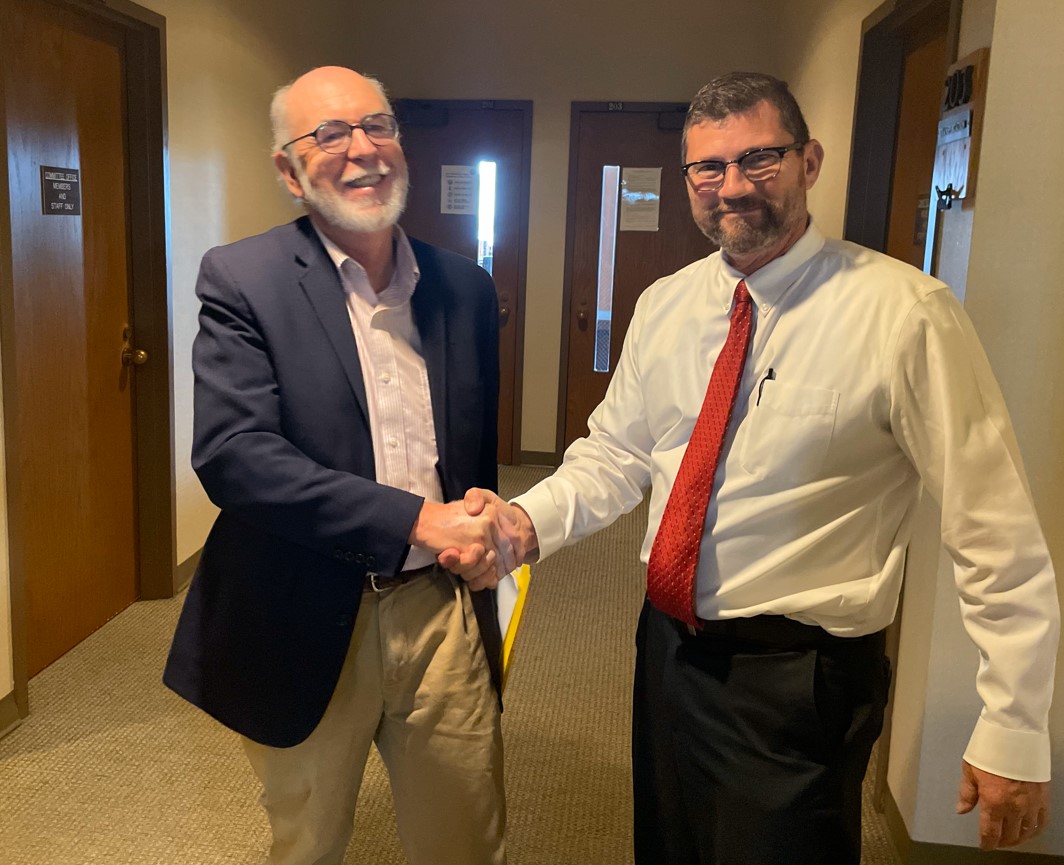By PAULA TRACY, InDepthNH.org
CONCORD – New Hampshire will have a two-year moratorium on the siting of any new landfills and a $200,000 study to determine how far they should be from water if the governor signs a bipartisan agreement on two bills hammered out Tuesday in committees of conference.
“It’s a huge accomplishment,” said Sen. David Watters, D-Dover, who with Sen. Kevin Avard, R-Nashua, shook hands over the agreement which see the contents of Senate Bill 61 and House Bill 211 ready for the governor’s signature following two committees of conference Tuesday.
“We worked together to pass 61,” said Avard. “All the Departments, the Senate and the House and of course the executive branch came together and a decision was made,” Avard said.
“We’ve all signed off and it is done,” Watters said.
Now rolled into SB 61, the bill establishes the criteria for evaluating landfill setbacks. It places a two-year moratorium on any new permits during that period.
Watters said there potentially would have been permitting requests to the state Department of Environmental Services without this action.
It also adds a 90-day extension to the moratorium if that period of time is needed, Watters said.
There is a $200,000 line item to hire a firm to study what criteria the DES should use when it makes such an evaluation for a new landfill.
There are very strict criteria in the bill on how the state will decide potential siting and setbacks away from water bodies, Watters said.
That is what House Bill 211 sought to accomplish and it is now in Senate Bill 61, the two agreed.
This does not apply to the expansion of existing landfills.
That uses a separate set of rules, Watters said.
Avard noted that there was some confusion about that and existing landfills were part of a later discussion.
“I think we really solved a good, bipartisan problem,” Avard said.
Watters agreed.
Both gave each other the credit for moving the ball over the finish line.
“So Senator Avard’s leadership on this, the work of Mark Sanborn of (Assistant Commissioner of DES) was just fabulous and it meant we got a really good bill through and that we solved a problem that we have been struggling with this for five years now,” Watters said.
“I really hope that people see this as an extraordinarily good faith effort on the part of DES and the legislature to deal with a very tough issue about landfills,” Watters said.
There is still work to do on landfills, he noted and the “larger issue of how we reduce, have source reduction,” and Avard said there is likely a study commission on that and he may be appointed to it.
“We do receive a lot of solid waste from outside the state,” Avard said.
The issue at hand with these bills is what happens when barriers between landfills break down and leach into nearby water bodies, tainting them in some cases with toxins.
The current setback is 200 feet from the water. In 2022 a bill that would have created setbacks which would take leachate more than five years to migrate was passed by both chambers but vetoed by Gov. Chris Sununu who said the state already had rigorous rules on the subject.
The groups Save Forest Lake and the North Country Alliance for Balanced Change have been pushing lawmakers to come up with a better solution to the problem of landfill sitings, and have expressed concerns that forever chemicals such as PFAs may be migrating into drinking water.
Avard and Watters said this is not just a North Country issue but impacts can be felt statewide.
The measure will return to both chambers for a final concurrence and then work its way toward the governor’s desk.






